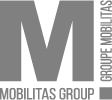
Tahiti in May, Côte d’Ivoire in September, in the space of a few months the MOBILITAS Group has begun to develop its international heritage division, the group’s new strategic target. The expansion further diversifies our global service offering and complements our other strategic activities, namely removals, records management, and relocation.
The heritage division brings together exceptional and complementary expertise in the preservation and enhancement of the world’s cultural, artistic, and historical heritage. Our projects include restoring ancient books and documents, digitising iconographic, photographic and audio-visual collections, and the 3D-digitisation of movable and immovable historical heritage with the creation of immersive virtual reality environments.
Helping corporations, foundations, and museums save their treasures

“These highly specialised skills can respond to specific problems, such as the preservation and enhancement of heritage but also preventative conservation and restoration,” explains Alain Taïeb. The group has all the resources necessary to digitise historical and cultural works. It can meet all the requirements of current and future clients, which opens a wide range of possibilities.
Confident that its services can be useful in all the countries where the MOBILITAS Group is present, the heritage division is adapting to the local characteristics and cultures of each country to establish a local presence and win over new clients.
“Our trip to Côte d’Ivoire has once again highlighted the diversity and wealth of our future clients’ needs. Major Ivorian cultural institutions have confirmed our intuition,” says Alain Taïeb.
The trip also revealed that, to be deployed effectively, our heritage services require quality preparatory work upstream by our local teams. We must identify and target our prospects’ projects and assist them in obtaining funding.
The successful development of our heritage division depends on three key conditions
Our short- and long-term success is based on three main pillars.

Maryline Morales
1. Establishing contacts with the key players in each country
This is key and the first step of the process.
In Côte d’Ivoire and in Tahiti, Sophie Taïeb, Brand Ambassador for International Affairs, in conjunction with Lallie in Tahiti and Sandrine in Abidjan, arranged meetings with key local players, such as museums, government representatives, foundations, and representatives of architectural heritage and audio-visual records. “Our range of services has been very well received,” says Guillaume Dehem, Director of AGS Côte d’Ivoire. “The local actors are now aware of the importance of safeguarding and promoting their heritage.”
2. The support of the country manager and their team, who must play a leading role
Like Lallie Miralles, Head of Records Management and Digitisation in French Polynesia, Sandrine Kouamé, Record Management Sales Manager at AGS Côte d’Ivoire, follows up on the local contacts initiated by Sophie Taïeb and the MOBILITAS Heritage Division.

“Our work involves defining the priorities and problems that each potential client is facing and proposing a solution that meets their expectations,” explains Lallie Miralles.
For Guillaume Dehem in Côte d’Ivoire, “working on this service offering is rewarding and there is a lot to do. As an immediate consequence, we need to organise ourselves internally to bring this new and comprehensive area of expertise to bear.”
3. Helping to find appropriate sources of funding
Some countries are facing funding difficulties for heritage conservation projects.
“In countries such as Côte d’Ivoire, where public funding is quite low, it is imperative to find solid leads,” explains Alain Taïeb. We want to facilitate contacts with potential investors through our networks so that projects can be implemented. In Côte d’Ivoire, for example, meetings have been held with public financial institutions such as the French Development Agency (AFD), with international organisations like UNESCO, and private foundations.
Next destinations in 2021: Dubai and Abu Dhabi

At the same time, the MOBILITAS Group is conducting a market study to better target the development of the heritage service in Côte d’Ivoire. It also sponsored the International Audio-visual Archives Day which recently took place in Abidjan. The work done here will also benefit the deployment of the service in other countries in Africa or the other continents.
Buoyed by these initial experiences, the heritage division, driven by Grégory Masanet, is continuing to arrange appointments in countries where the group is based. The next step will be a trip to the UAE at the end of November.


